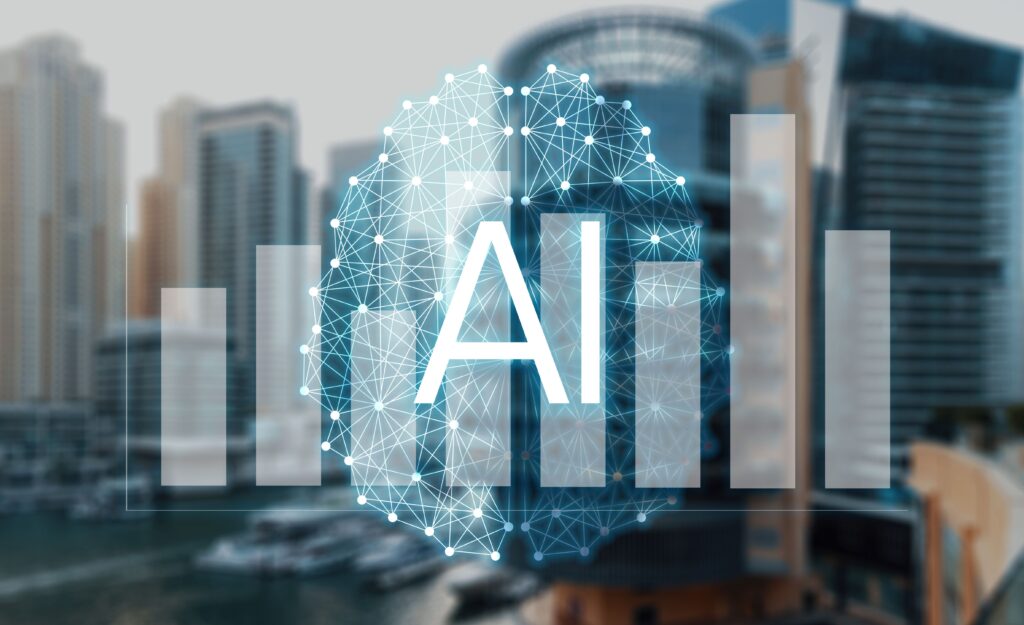AI and Machine Learning in ERP: Driving Innovation and Insight

AI and Machine Learning in ERP: Driving Innovation and Insight
Building upon previous discussions, this blog delves into the transformative role of artificial intelligence (AI) and machine learning (ML) in enhancing Enterprise Resource Planning (ERP) systems. We will explore AI-driven ERP applications and their numerous benefits.
Artificial Intelligence (AI) and Machine Learning (ML) are revolutionising the way businesses operate, and the realm of ERP is no exception. In this blog, we will explore how AI and ML technologies are transforming traditional ERP systems, driving innovation, and providing valuable insights for businesses of all sizes.
- Understanding AI and Machine Learning in ERP
- AI: AI refers to the simulation of human intelligence in machines, enabling them to perform tasks that typically require human intelligence, such as learning, reasoning, and problem-solving.
- Machine Learning: ML is a subset of AI that focuses on the development of algorithms that allow computers to learn from and make predictions based on data, without being explicitly programmed.
- Benefits of AI and ML in ERP
- Predictive Analytics: AI and ML algorithms can analyse historical data to predict future trends, helping businesses make informed decisions and anticipate market changes.
- Automation: AI-powered ERP systems automate repetitive tasks, such as data entry and inventory management, reducing manual effort and increasing efficiency.
- Personalization: ML algorithms can analyse customer data to personalise marketing campaigns, product recommendations, and customer interactions, enhancing the customer experience.
- Fraud Detection: AI algorithms can detect anomalous patterns in financial transactions, flagging potential instances of fraud and enhancing security.
- Optimized Resource Allocation: ML algorithms can optimise resource allocation by analysing production data and identifying areas for improvement, such as reducing waste and optimizing inventory levels.
- Examples of AI-Driven ERP Applications
- Demand Forecasting: AI-powered ERP systems can analyse historical sales data, market trends, and external factors to predict future demand for products, enabling businesses to optimize inventory levels and production schedules.
- Chatbots: AI-driven chatbots integrated into ERP systems can provide instant support to employees and customers, answering questions, providing information, and resolving issues in real-time.
- Predictive Maintenance: ML algorithms can analyse equipment sensor data to predict equipment failures before they occur, enabling proactive maintenance and reducing downtime.
- Supply Chain Optimisation: AI-powered ERP systems can optimise supply chain operations by analysing supplier performance, demand forecasts, and logistics data to identify inefficiencies and streamline processes.
- Implementation Considerations
- Data Quality: Successful implementation of AI and ML in ERP requires high-quality data, as algorithms rely on accurate and comprehensive data sets for training and analysis.
- Integration: AI and ML capabilities should be seamlessly integrated into existing ERP systems, ensuring compatibility and interoperability with other modules and applications.
- User Training: Employees should be trained on how to use AI-driven ERP features effectively, ensuring they can leverage the technology to its full potential.
- Security: AI-powered ERP systems should employ robust security measures to protect sensitive data and prevent unauthorized access or data breaches.
- Future Trends
- Advanced Analytics: The integration of AI and ML will continue to drive advancements in ERP analytics, enabling businesses to gain deeper insights into their operations and customer behaviour.
- Natural Language Processing (NLP): NLP technologies will enable ERP systems to interpret and respond to natural language queries, improving user experience and accessibility.
- Predictive Maintenance: AI-driven predictive maintenance will become more sophisticated, allowing businesses to optimise equipment performance and reduce maintenance costs.
Conclusion
AI and ML technologies are transforming ERP systems, enabling businesses to drive innovation, gain valuable insights, and stay competitive in today’s rapidly evolving market. By embracing AI-driven ERP solutions, organisations can streamline operations, enhance decision-making, and unlock new growth opportunities.
Should you require any assistance or further guidance, you can contact us. Our team is readily available to support you and address any queries you may have. We’ll be more than happy to assist you.

